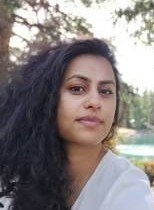
Women who named the unnamed: tribute to the brilliance
by Sameena Siddiqui
Who they are, they are bizarre! But them you can’t extinguish,
They are whole, they are part, mingled so, you can’t distinguish,
Determined! They want the flame of hope to ignite,
Determined! They want life to illuminate like light,
Who they are, they are bizarre! Them you can’t extinguish,
They are whole, they are part, mingled so, you cant distinguish
yeh jo bhi hain ajeeb hain mitai mit na payenge,
yeh kul bhi hain, yeh juz bhi hain, tumhe nazar na ayenge,
yeah zid pe hain ke roshni ka har chirag jal uthe,
yeh zid pe hain ke zindagi mein roshni beekher de,
yeh jo bhi hain ajeeb hai mitai mit na payenge,
yeh kul bhi hain yeh juz bhi hain tumhe nazar na ayenge
(Gauhar Raza, Urdu. Translation, Author)
On 11th Feb 2018, Pakistan lost a willful feminist who insisted on getting her way, becoming audible and laying bare the societal violence directed towards the vulnerable and the marginalized. Asma Jilani Jahangir was the leading Pakistani Human Rights activist, lawyer, feminist and a fearless critic of the military interference in civil society and dictatorial role in politics. She always spoke truth to power and fought for women, minority, and bonded labourers’ rights against religious extremism and state authoritarian injustice in Pakistan. Asma gained international recognition for being the conscience of democratic and progressive Pakistan in the decades when secular voices and civil liberties were constantly under threat.
Asma’s tryst with the authoritarian state began in the year 1971 when she filed a case against the government of Punjab for the release of her father, Malik Ghulam Jilani, then a Member of the National Assembly who had been incarcerated for protesting against Pakistan’s Army action in East Pakistan, now Bangladesh. This was Asma’s first case, she won it, and it became a landmark that was followed by the interim Constitution of 1972 and by the permanent constitution of 1973. As well, Zulfikar Ali Bhutto, the President, and Chief Martial law Administrator at the time had no choice but to remove the Martial law because of the judicial pronouncements made in that case.
Then in 1983, military dictator General Mohammed Zia-ul-Haq enacted laws for the Islamization of Pakistan based on political motives. Haq’s desire to create an Islamic state where people of diverse ethnicity and pluralities live per Islamic principles was rooted in Pakistan’s genesis narratives. In 1979, he made several attempts to change the essential secular character of Pakistan’s legal system by implementing Islamic criminal law and established the Federal Shariat Court to monitor Pakistan’s adherence to it. Under such a system, women and minorities were subjected to violence, sexual abuse, and blasphemy laws to control, punish and outcast those who defied the retrogressive norms and patriarchal oppression.
This was the decade when the Islamic revolution in Iran, the Soviet invasion of Afghanistan and the emergence of Zia’s regime backed by US military forced a backward journey on women in the South Asian subcontinent. In that era of religious extremism, Asma Jahangir became the face of feminist protest against Zia-ul-Haq’s ordinances and fought on the streets against the weaponization of the seventh-century Islamic laws and tenets targeting women, queers, and people belonging to minority groups. On the ground, despite several death threats and imprisonments, feminist poets, writers and lawyers joined hands to build a counter momentum to fight the tyranny, politicization of Islam, and institutional compliance with gendered discriminatory legislation.
Asma and other women leaders were determined to resist the moral regulation unleashed by the post-colonial state in the name of religion, and they came together with progressive men to form Human Rights Commission of Pakistan (HRCP, 1987)-an independent group, where they openly spoke about the failure of Pakistan’s state to protect women and minority rights as a systemic violation of international human rights. Women founded other organizations such as Women Action Forum (WAF), Punjab Women Lawyers Association (PWLA), AGHS Legal Aid Cell (ALAC). These organizations campaigned against the Hudood Ordinances (1979), provided free legal assistance to the lower caste/class women fleeing sexual violence, domestic abuse or custodial rights.
Interestingly, the regime that attempted to marginalize the women saw the genesis of the most vibrant women’ movement in Pakistan. Despite being seen as a threat to ‘national honour’, Asma Jahangir continued her lifelong work of fighting for legal rights for minorities and eradication of child labour. Later, she won several international awards and served as a United Nations rapporteur on Freedom of religion and was also a trustee at the International Crisis Group.
Today, Asma Jahangir left us with a feminist legacy that teaches us how to willfully refuse to be included in a system that is predicated on inequality and violence.
An event to celebrate women who named the unnamed “Pakistan’s & Local Women Heroes” will be held on Saturday, September 28, 2019 at Centre Stage, Surrey City Hall, 13450 – 104 Avenue Surrey, BC, Canada V3T 1V8. For more information contact: Phone: 604-591-4011
 Sameena Siddiqui is a PhD candidate at the Department of Art History, Visual Art and Theory at UBC. In her doctoral thesis, she is looking at the politics of intertextuality between print, photography, and cinema in the early 20th century India. She did her MPhil from School of Arts & Aesthetics, Jawaharlal Nehru University (JNU), Delhi and has presented her work in several international conferences and residencies.
Sameena Siddiqui is a PhD candidate at the Department of Art History, Visual Art and Theory at UBC. In her doctoral thesis, she is looking at the politics of intertextuality between print, photography, and cinema in the early 20th century India. She did her MPhil from School of Arts & Aesthetics, Jawaharlal Nehru University (JNU), Delhi and has presented her work in several international conferences and residencies.

The High Asia Herald is a member of High Asia Media Group — a window to High Asia and Central Asia

